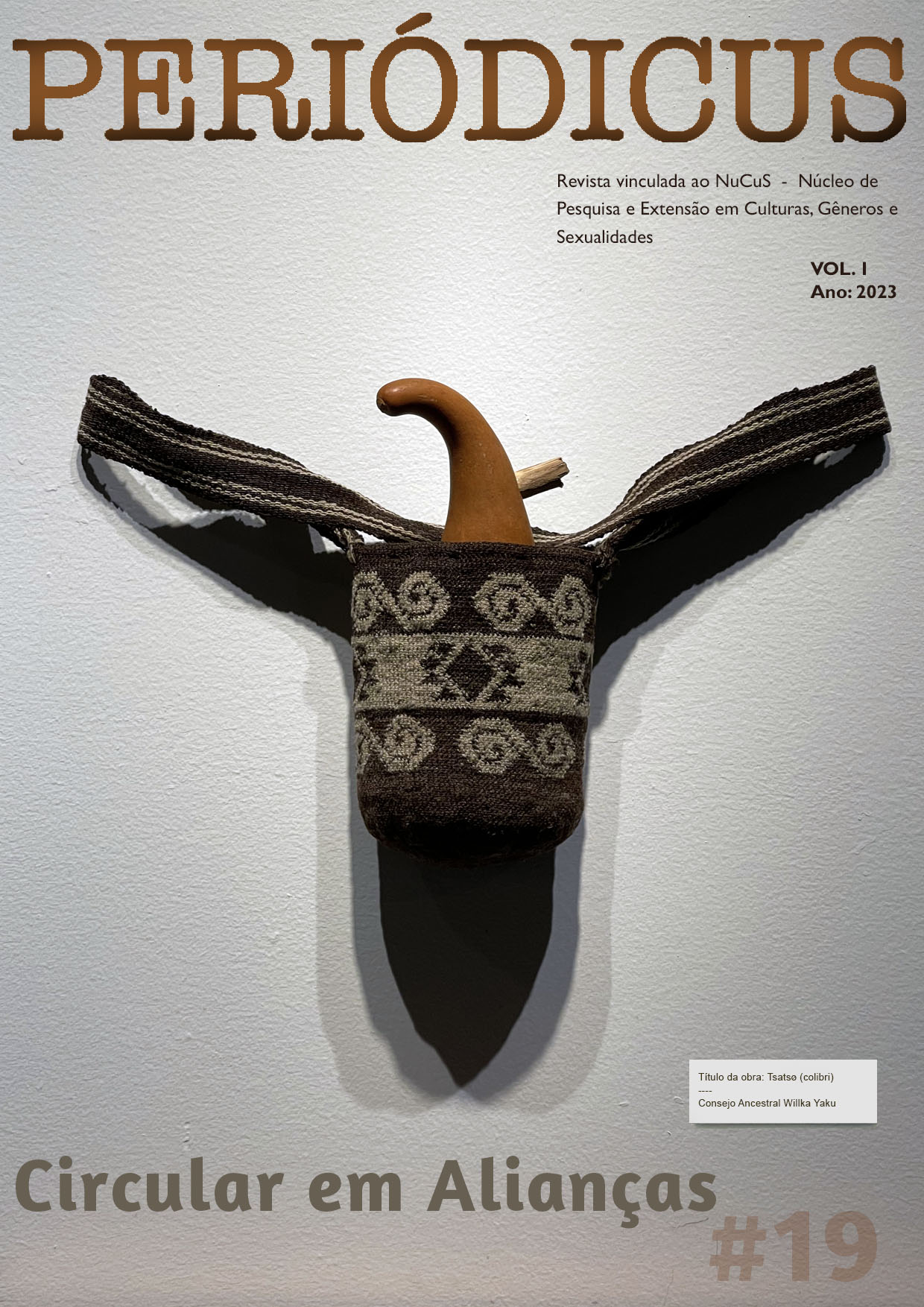The web of gender, race and class solidarity in the experience of the Popular Collective of Women from the West Zone of Rio de Janeiro
DOI:
https://doi.org/10.9771/peri.v1i19.53971Abstract
The Teia de Solidariedade da Zona Oeste is a praxis created by the Coletiva Popular de Mulheres da Zona Oeste, on the outskirts of Rio de Janeiro, as a form of re-existence within a pandemic context marked by extreme food and nutritional insecurity and the weakening of food sovereignty. As a fighting strategy, in a territory with a black people majority and greater food production in the city, we defended the idea of “living and planting”, articulating struggles for land, housing, adequate food, Good Living, self-care and radical care and integral health. In a hostile and militarized environment, emphasizing the perspective of the black population, it was possible to raise other care and healing practices. Even in a bleak scenario from a social, economic and political point of view, it was possible to strengthen the self-organization of women, mainly black women, with expressive results: between 2021 and 2022, more than four tons of food were distributed, bought directly from local agriculture. It should be emphasized that this scenario was only possible because there was already a process of self-organization in the territories and also because of the
conditions for producing food and water in this region of the city.
Downloads
Downloads
Published
How to Cite
Issue
Section
License
Copyright (c) 2023 Silvia Baptista, Caren Freitas, Mariana Bruce

This work is licensed under a Creative Commons Attribution-NonCommercial 4.0 International License.
Autores que publicam nesta revista concordam com os seguintes termos:
Autores mantêm os direitos autorais e concedem à revista o direito de primeira publicação, com o trabalho simultaneamente licenciado sob Licença Creative Commons Attribution Noncommercial que permite o compartilhamento do trabalho com reconhecimento da autoria e publicação inicial nesta revista, sendo vedado o uso com fins comerciais.
Autores têm autorização para assumir contratos adicionais separadamente, para distribuição não-exclusiva da versão do trabalho publicada nesta revista (ex.: publicar em repositório institucional ou como capítulo de livro), com reconhecimento de autoria e publicação inicial nesta revista.
Autores têm permissão e são estimulados a publicar e distribuir seu trabalho online (ex.: em repositórios institucionais ou na sua página pessoal) a qualquer ponto antes ou durante o processo editorial, já que isso pode gerar alterações produtivas, bem como aumentar o impacto e a citação do trabalho publicado (Veja O Efeito do Acesso Livre).







